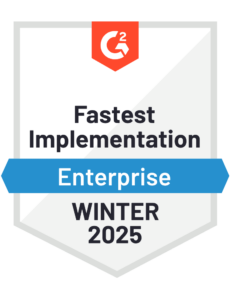Planning For 2022: Three Things Every CFO Should Prioritize Now
Blog post
Share
Omar Choucair, CFO, Trintech, has spent 20+ years leading financial and administrative organizations for public and private companies.
While business leaders eagerly await seeing the pandemic in the rearview mirror, the effects of the pandemic will not likely go away soon. Earlier in the year, many companies anticipated the last few months of 2021 would be spent integrating their workforces back into physical offices, settling in for an in-person-centric 2022. Instead, the big lesson we’ve collectively learned over the past few months is that we will be working in a hybrid environment for the foreseeable future.
Now that they have a clearer picture of what “normal” work will look like next year, CFOs can focus on the key areas that will allow their organizations to succeed in this new “stable instability.” Let’s walk through three primary areas of focus CFOs should consider as they prepare for the year ahead.
The Team, The Team, The Team
CFOs can expect the current war on talent to accelerate in the coming months. The reality is there has been an exodus of segments of the workforce, resulting not only in staffing shortages but also directly diminishing the strength of companies’ culture. In PwC’s August Pulse Survey, nearly half of CFOs polled cited loss of corporate culture as the biggest challenge of hybrid work. In fact, it is a greater concern among those CFOs than it is across “all executives,” where just 36% cited it as the primary worry.
CFOs need to act fast to support finding the right talent, effectively onboarding new employees and proactively investing in retaining those hires for their organizations to thrive in a hybrid work environment. One tactic that can help support each of these priorities are employee listening surveys. Asking your team about their experience not only supports a culture of open communication, it also provides you with access to real feedback. This feedback in turn helps leadership teams identify what elements of an organization’s culture employees derive the greatest value from and where culture deficits may be developing and need attention. When you have clarity on what’s going well and what might need some work, you can invest resources to support the former and bolster the latter.
Continued C-Suite Collaboration
The relationship between the CFO and CIO will be more important than ever in facilitating organizational growth. The past year has shone a light on the emergence of the “Strategic CFO,” and I’ve seen firsthand the benefits of removing organizational silos. Open and frequent communication focused on strategic problem-solving was an essential component of many organizations’ successful navigation of the challenges brought on by the pandemic.
As the agents of efficiency and agility, CFOs and CIOs — in partnership with CEOs and the rest of the senior team — bring the most impact to their organizations when aligned and sharing a leadership vision. This may sound unsurprising, but for many, it was not in fact the norm until 20 months ago. From improving finance processes to driving employee engagement, a strong relationship between the CFO and CIO generates value within an organization by enabling operational pain points to be effectively resolved, and value-added processes, platforms and frameworks to be implemented.
When leaders communicate effectively with each other, the broader team receives more of what it needs to work well. That helps foster a corporate culture that supports employees in the ways that are of the highest value to them — sustaining a culture they want to be a part of and that they want to stay a part of.
The Acceleration Of Technology
The ability of the CFO to both manage new talent and collaborate with the C-suite strategically will hinge on how quickly they can fast-track digital transformation within the organization. CFOs are investing in this transformation faster than ever: 68% of CFOs surveyed by PwC said their companies planned to invest in digital transformation in the next year, while 58% were prioritizing automation to “help offset the loss of institutional knowledge when people separate from their companies.”
Trusted technology serves as the foundation for value-additive work. When you remove repetitive and manual tasks from an employee’s plate, you enable that employee to engage in higher value work. For example, with my team, we’ve upgraded our monthly close process. That means that instead of spending time entering data, my team is working with me to analyze the data and draw conclusions that inform our overarching business strategy. Not only does that more meaningful work directly and positively impact our organization’s bottom line, it also generates a higher level of satisfaction for the team.
Now is the time to accelerate. “Surviving” is no longer good enough for companies, and CFOs will be pushed to find innovative ways to facilitate, and sustain, growth in a hybrid work environment. The next couple months will be critical in positioning companies for success in 2022, and the companies that succeed will undoubtedly be spurred on by an engaged and digitally empowered office of finance.






